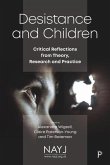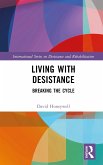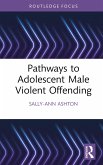Developmental norms and expectations for young people aged 18-25 have diverged from previous generations, creating a new stage in the life course called Emerging Adulthood. Theory surrounding this stage of emerging adulthood emphasizes a delay in achieving turning points into adulthood that are typical of this age group. These delays, in turn, affect how maturation can influence the desistance from crime.
Utilizing evidence from the narratives of justice-involved emerging adults, this book details key turning points for today's young person trying to desist from crime. Building on evidence from researchers and theorists as well as from the author's own narrative interviews, this book provides a brief and approachable review of the extant literature, summarizing work across the fields of developmental psychology, sociology, and criminology to provide the reader with an understanding of the maturation of young people in their late teens and 20s before concluding with considerations for policy and practice building from this evidence.
Growing Up and Out of Crime is perfect for students, scholars, and academics who study youth, young adults, and their maturation, deviance, and desistance as well as for practitioners working with young people engaging in desistance.
Utilizing evidence from the narratives of justice-involved emerging adults, this book details key turning points for today's young person trying to desist from crime. Building on evidence from researchers and theorists as well as from the author's own narrative interviews, this book provides a brief and approachable review of the extant literature, summarizing work across the fields of developmental psychology, sociology, and criminology to provide the reader with an understanding of the maturation of young people in their late teens and 20s before concluding with considerations for policy and practice building from this evidence.
Growing Up and Out of Crime is perfect for students, scholars, and academics who study youth, young adults, and their maturation, deviance, and desistance as well as for practitioners working with young people engaging in desistance.
"Nader has produced a top-notch study that advances the field of desistance and maturation in several important ways. Written in engaging and vivid prose, Nader sheds light on not only the importance of identity transformation in emerging adulthood but also on the mechanisms through which identity shifts. The research participants' voices tell the story throughout, with Nader's deft analytic hand guiding the analysis, resulting in a vital contribution to life-course criminology and one that is sure to be a staple in classrooms for years to come."
Michael Rocque, Bates College
"Nader deftly integrates theory and research to address a major problem in criminology: as many of the well-known turning points supporting desistance from offending become increasingly rare, how do today's emerging adults form law-abiding identities? If marriage and employment spurred conformity for the generation after World War 2, what are the hooks for change that young people employ in the contemporary context? In answering these questions, Growing Up and Out of Crime advances the field of life course and developmental criminology and has important implications for crime policy."
Jamie J. Fader, Temple University College of Liberal Arts
Michael Rocque, Bates College
"Nader deftly integrates theory and research to address a major problem in criminology: as many of the well-known turning points supporting desistance from offending become increasingly rare, how do today's emerging adults form law-abiding identities? If marriage and employment spurred conformity for the generation after World War 2, what are the hooks for change that young people employ in the contemporary context? In answering these questions, Growing Up and Out of Crime advances the field of life course and developmental criminology and has important implications for crime policy."
Jamie J. Fader, Temple University College of Liberal Arts









